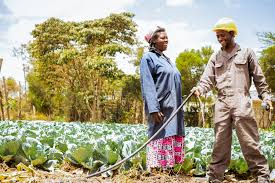
SACCOs are playing a significant role in promoting social responsibility by supporting sustainable development initiatives.
In Kenya, Savings and Credit Cooperatives (SACCOs) have emerged as an integral part of the country’s financial sector. As a financial institution, they allow individuals to pool their financial resources together. They are also able to provide each other with credit and other financial services especially now that they have digitized their processes. Through the provision of these financial services, the SACCOs have been considered a vehicle for social responsibility. This is due to their quest to build sustainable communities in Kenya by engaging in activities that contribute to sustainable development.
SACCOs and Social Responsibility
Social responsibility generally refers to the ethical behavior of an organization towards the community, environment, and its stakeholders. It includes the obligations of organizations to promote social welfare and to protect the environment while pursuing their business interests.
SACCOs, as financial institutions are not exempt from social responsibility. They have a responsibility to their members, the community, and the environment.
SACCOs, being financial institutions, are not exempt from social responsibility. They have a responsibility to their members, the community, and the environment. The SACCOs have managed to achieve this by being involved in community development projects that promote social sustainability.
Some of the community projects include the provision of financial services to individuals who may not have access to mainstream banking services. The individuals include the youth, women, and low-income earners. The members are able to come together, share ideas, and engage in social activities.
Also, SACCOs are involved in education projects that provide scholarships, bursaries, and school infrastructure. They can also be involved in healthcare projects that provide medical equipment, health education, and health insurance. As a result of this, the projects are able to improve living standards and promote social inclusion.
SACCOs and Sustainable Development
Sustainable development can be defined as the art of meeting the needs of the present without compromising the ability of future generations to meet their own needs. In Kenya, sustainable development is a critical goal as the country faces challenges such as poverty, environmental degradation, and inadequate access to basic services such as healthcare and education. SACCOs are contributing to sustainable development in the following ways:
Provision of access and credit to smallholder farmers.
In Kenya, agriculture is a key sector of the country’s economy. However, many smallholder farmers lack access to credit and other financial services that could help them to grow and expand their businesses.

SACCOs have come to the rescue of smallholder farmers by providing access to credit and other financial services. By doing this, the farmers are able to invest in their businesses and improve their livelihoods, while also promoting sustainable agricultural practices that are more environmentally friendly.
Promoting renewable energy and other sustainable technologies.
In order to support the development and adoption of renewable energy technologies, SACCOs may provide funding or other resources.
Renewable energy technologies could include solar power or biogas. By promoting the use of these technologies, SACCOs can help to reduce the dependence on fossil fuels and other non-renewable resources. In addition to that, it will be possible to create new economic opportunities and promote sustainable development.
Economic Sustainability
SACCOs are contributing to financial sustainability with the aid of providing monetary offerings to people and small organizations. SACCOs offer lower-priced loans, financial savings bills, and investment alternatives, which enable people to develop their companies and create employment opportunities. This, in turn, enables to reduce poverty and inequality. SACCOs also offer monetary schooling and training to contributors, which improves their economic literacy and empowers them to make knowledgeable financial selections.

Further to presenting financial services, SACCOs also are contributing to economic sustainability with the aid of making an investment in community improvement initiatives. SACCOs are concerned with water supply, agriculture, and strength tasks. By making an investment in these projects, SACCOs are growing employment opportunities, improving the same old of living, and promoting a financial boom.
Environmental Sustainability
SACCOs are also contributing to environmental sustainability by way of promoting environmental conservation and sustainable resource management. SACCOs are involved in initiatives that include afforestation, waste management, and renewable energy. Through making an investment in those projects, SACCOs are selling sustainable aid control. They are also lowering environmental degradation, and mitigating the consequences of climate change.
SACCOs also are promoting environmental conservation by incorporating environmental management practices in their operations. SACCOs are adopting measures such as energy conservation, waste management, and the use of renewable electricity. Those measures assist to lessen the carbon footprint of SACCOs and sell environmental sustainability.
SACCOs are promoting environmental conservation by means of implementing green projects in their operations. They’re selling sustainable practices consisting of energy conservation, waste reduction, and the use of renewable power resources. SACCOs are also supporting environmental conservation via tree planting, smooth-up physical activities, and environmental training campaigns.
SACCOs and Corporate Social Responsibility
Corporate social responsibility (CSR) refers to the idea that businesses have a responsibility to operate in a way that is ethical and beneficial to society. SACCOs have embraced CSR by incorporating ESG factors into their operations and decision-making processes. This includes promoting transparency, accountability, and good governance.
In the context of SACCOs, corporate social responsibility can take many forms. One manner SACCOs can fulfill their social duty is by way of offering financial education and literacy applications to their members and the broader community. This may include workshops, seminars, and online assets that help humans better control their money and make informed economic selections.
In another instance, SACCOs can interact in CSR by promoting economic inclusion and serving underprivileged communities. This can involve presenting economic services and products that are tailor-made to the desires of low-earnings individuals and households, consisting of microloans, insurance, and savings bills. SACCOs can also partner with other companies to offer monetary services to folks who may not have to get entry to conventional banking offerings.
Conclusion
In conclusion, SACCOs are playing a significant role in promoting sustainable development in Kenya. SACCOs are contributing to economic, social, and environmental sustainability by providing financial services, investing in community development projects, and promoting environmental conservation. They are also promoting financial inclusion, supporting SMEs, promoting environmental conservation, engaging in CSR activities, and implementing good governance practices. SACCOs are making a significant contribution to Sustainable development in Kenya.

